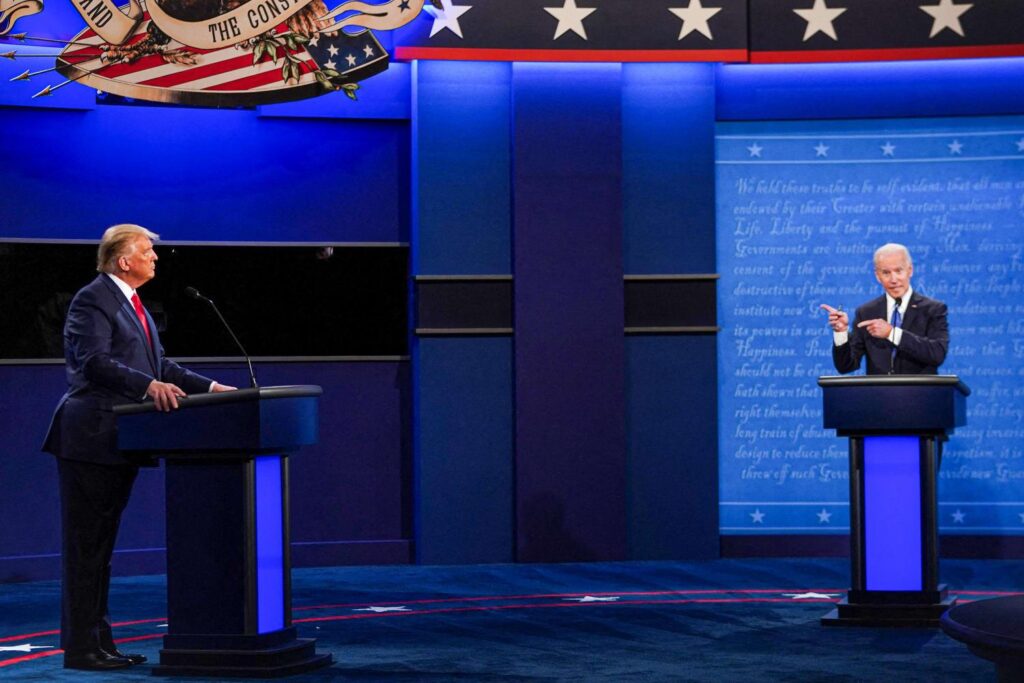In the wake of a tumultuous four years under the Trump administration, President-elect Joe Biden’s team is faced with the daunting task of “Trump-proofing” their foreign policy strategies. As they navigate the complexities of international relations, they must carefully consider how to restore America’s global reputation and rebuild diplomatic alliances that have been strained in recent years. The decisions made by the Biden team in the coming months will undoubtedly shape the course of US foreign policy for years to come.
– Ensuring Continuity in Foreign Policy Amidst Transition
The Biden team is currently grappling with the challenge of how to navigate the transition of power in order to ensure continuity in foreign policy amidst the unpredictable legacy of the Trump administration. One key consideration being debated is how to ‘Trump-proof’ foreign policy moving forward. This involves strategizing on how to undo some of the more controversial and potentially damaging decisions made by the outgoing administration, while also setting a new course that is consistent and stable.
In order to achieve this goal, the Biden team is exploring a range of options, including:
- Engaging in diplomatic outreach to key allies and partners to reaffirm commitments and reestablish trust
- Reviewing and potentially reversing contentious policies such as the withdrawal from international agreements like the Paris Climate Accord or the Iran Nuclear Deal
- Implementing a more predictable and traditional approach to foreign policy decision-making
The ultimate aim is to ensure that the United States can effectively navigate the transition period and emerge with a foreign policy that is rooted in stability, consistency, and a renewed sense of leadership on the global stage.
– Balancing National Security Interests with Diplomatic Norms
The Biden administration is currently grappling with the challenge of striking a delicate balance between safeguarding national security interests and upholding diplomatic norms in the wake of the Trump era. The new team is faced with the daunting task of recalibrating U.S. foreign policy to ensure that it is not only effective in addressing global threats but also respectful of international norms and values.
To achieve this goal, the Biden team is considering a range of strategies, including:
- Reasserting U.S. leadership in global alliances to strengthen diplomatic ties and promote a unified approach to addressing security challenges.
- Engaging in constructive dialogue with adversaries to de-escalate tensions and prevent conflict.
- Emphasizing multilateral cooperation to address shared security concerns and promote a more inclusive approach to diplomacy.
– Crafting a Strategic Approach to Counter Potential Reversals
The Biden administration is currently engaged in vigorous debates on how to ‘Trump-proof’ its foreign policy strategy. This strategic approach is aimed at countering potential reversals and ensuring continuity in America’s international relations. The discussions are focused on crafting a robust framework that can withstand any unexpected shifts in future administrations.
Key considerations include:
- The need for bipartisan support to sustain long-term policies.
- Ensuring international agreements are legally binding to prevent unilateral withdrawals.
- Strengthening alliances and partnerships to create a united front on global issues.
- Incorporating lessons learned from past administrations to avoid repeating mistakes.
– Engaging Allies and Strengthening International Partnerships to Safeguard Prior Agreements
The Biden administration is currently strategizing on how to “Trump-proof” its foreign policy by focusing on engaging allies and strengthening international partnerships to safeguard prior agreements. One key aspect being debated is how to effectively work with existing partners to uphold longstanding agreements and ensure continuity in diplomatic efforts. By prioritizing multilateralism and collaboration, the Biden team aims to build a strong network of allies to navigate potential challenges and maintain stability in the international arena.
As part of their approach, the administration is exploring various avenues to reinforce existing partnerships and alliances. This includes exploring opportunities for enhanced cooperation through joint initiatives, diplomatic channels, and strategic dialogues. By leveraging the collective strength of allied nations, the Biden team seeks to promote shared values, address global challenges, and foster a more cohesive approach to international relations. Through consistent engagement and proactive measures, they aim to pave the way for a more unified and resilient global community.
The Conclusion
As the Biden administration continues to shape its foreign policy strategies, the debate over how to “Trump-proof” their approach rages on. With a focus on diplomacy, cooperation, and multilateralism, the team grapples with the challenge of navigating global affairs in a post-Trump world. As they seek to find a balance between asserting American leadership and fostering international relationships, the road ahead remains uncertain. Only time will tell how successful their efforts will be in ensuring a stable and secure future on the world stage.


